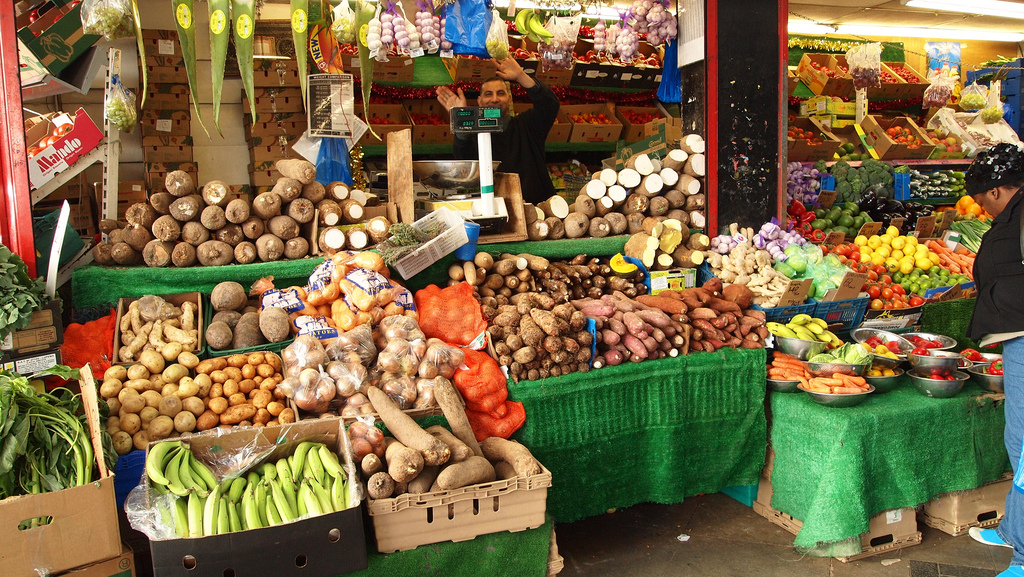Rising food costs trigger survival challenges throughout Nigeria, intensifying nationwide concerns
Nigeria is currently grappling with a severe crisis as citizens nationwide find it increasingly difficult to survive amidst a sharp surge in food prices.
A recent investigation by Sunday Tribune revealed alarming indicators of a nationwide struggle for survival, attributed to the persistent rise in the cost of essential foodstuffs and staples.
Rising food costs according to the report, in just one week, the prices of foodstuffs have witnessed a staggering increase ranging from 15 to 25 percent.
Specific examples, such as the skyrocketing cost of a 50kg bag of small grain polished rice, reflect the widespread impact on household budgets.
What was sold for N52,000-N54,000 in the first week of January has now surged to an exorbitant N59,000-N60,000.
Markets across various regions, including Oko Oba in Lagos, Ojaoba in Akure, and Kadaure market in Chikun Local Government Area of Kaduna State, have reported soaring prices of goods such as beans, garri, rice, yam, onions, tomatoes, pepper, fish, vegetable oil, and more.
Traders attribute the price hikes to factors such as the removal of fuel subsidy, leading to increased transport fares, and the escalating insecurity in the country, with traders becoming victims of kidnappings.
As a result, consumers are forced to adapt to the harsh economic realities, altering their purchasing habits and buying smaller quantities due to affordability challenges.
Checks showed that the prices of beans, rice, yam, garri, onions, tomatoes, pepper, fish, vegetable oil, palm oil, flour, and others have exceeded what many consumers say they can afford.
A congo of garri is now sold between N600 and N900 depending on the quality of the product, while a congo of local and foreign rice is sold between N1,800 and N2,400.
White and brown beans are now for N1,600 and N1,900, a congo of yam flour is N1,200, a congo of purpura is now N1,000, a kilo of wheat that sold for N500 is now N900, while a kilo of Semo sells for N1,200.
Spaghetti now sells for N700, a loaf of bread sells between N600 and N1500 depending on the size, an egg sells for N150, a piece of Titus fish is sold within the range of N1,300 and N1,800, a litre of groundnut oil is sold for N1,500 while palm oil sells for N1,100.
A mother of three, Bunmi Ige, said she can no longer afford to buy half a rice bag as she used to because of the recent price hike.
“Half a bag of rice lasts for three or four months, but we cannot afford it any longer. We have resorted to local rice, and at times, we snub rice for yam, but it is still costly. The price of bread that we depend on sometimes has increased,” she explained.
On her part, Mrs Laide Adelaja said the increase in staple food prices is just a ploy to frustrate the poor and vulnerable in the country.
She said, “Things are costly now. I used to buy bags of rice and half a bag of beans and garri in the house, but these days, we can’t afford them any longer.
“We now take home what we see and eat. The situation is frustrating and saddening. Can you imagine common fermented locust bean of N5 now costs N100?”
She, however, blamed traders for the hike, adding that many business owners indiscriminately increased the prices of food items.
Also Read: Fuel And Rising Food Costs Push US Inflation To 7.9%
She thereafter called on the government to rescue Nigerians by looking into the increase in the prices of essential commodities.
“We can’t continue to blame the increase on dollars. We are using naira here and not dollars. Why do we blame dollar on what we are producing here, why is the price of garri and yam flour something the common man cannot afford,” she added.













